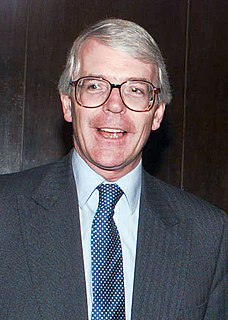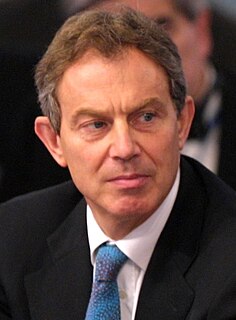A fuel tax is an excise tax imposed on the sale of fuel. In most countries the fuel tax is imposed on fuels which are intended for transportation. Fuels used to power agricultural vehicles, and/or home heating oil which is similar to diesel are taxed at a different, usually lower rate. The fuel tax receipts are often dedicated or hypothecated to transportation projects so that the fuel tax is considered by many a user fee. In other countries, the fuel tax is a source of general revenue. Sometimes, the fuel tax is used as an ecotax, to promote ecological sustainability. Fuel taxes are often considered regressive taxes.
In the United Kingdom, the retail prices index or retail price index (RPI) is a measure of inflation published monthly by the Office for National Statistics. It measures the change in the cost of a representative sample of retail goods and services.

Stamp duty in the United Kingdom is a form of tax charged on legal instruments, and historically required a physical stamp to be attached to or impressed upon the document in question. The more modern versions of the tax no longer require a physical stamp.
In the UK tax system, personal allowance is the threshold above which income tax is levied on an individual's income. A person who receives less than their own personal allowance in taxable income in a given tax year does not pay income tax; otherwise, tax must be paid according to how much is earned above this level. Certain residents are entitled to a larger personal allowance than others. Such groups include: the over-65s, blind people, and married couples where at least one person in the marriage was born before 6 April 1935. People earning over £100,000 a year have a smaller personal allowance. For every £2 earned above £100,000, £1 of the personal allowance is lost; meaning that incomes high enough will not have a personal allowance.
Various energy conservation measures are taken in the United Kingdom.

Motoring taxation in the United Kingdom consists primarily of vehicle excise duty, which is levied on vehicles registered in the UK and hydrocarbon oil duty which is levied on the fuel used by motor vehicles. VED and fuel tax raised approximately GB£32 billion in 2009, a further £4 billion was raised from the value added tax on fuel purchases. Motoring-related taxes for fiscal year 2011/12, including fuel duties and VED, are estimated that will amount to more than GB£38 billion, representing almost 7% of total UK taxation.

The usage and pricing of gasoline results from factors such as crude oil prices, processing and distribution costs, local demand, the strength of local currencies, local taxation, and the availability of local sources of gasoline (supply). Since fuels are traded worldwide, the trade prices are similar. The price paid by consumers largely reflects national pricing policy. Some regions, such as Europe and Japan, impose high taxes on gasoline (petrol); others, such as Saudi Arabia and Venezuela, subsidize the cost. Western countries have among the highest usage rates per person. The largest consumer is the United States, which used an average of 368 million US gallons each day in 2011.
The starting rate of income tax, often known as the 10p rate, was a special rate of personal income taxation in the United Kingdom that existed from 1999 to 2008.

The March 2010 United Kingdom Budget, official known as Budget 2010: Securing the recovery, was delivered by Alistair Darling, Chancellor of the Exchequer, to the House of Commons on 24 March 2010.

The June 2010 United Kingdom Budget, officially also known as Responsibility, freedom, fairness: a five-year plan to re-build the economy, was delivered by George Osborne, Chancellor of the Exchequer, to the House of Commons in his budget speech that commenced at about 12.30 p.m on Tuesday 22 June 2010. It was the first budget of the Conservative-Liberal Democrat coalition formed after the general election of May 2010. The government dubbed it an "emergency budget", and stated that its purpose was to reduce the national debt accumulated under the Labour government.

The 2011 United Kingdom budget, officially called 2011 Budget - A strong and stable economy, growth and fairness, was delivered by George Osborne, the Chancellor of the Exchequer, to the House of Commons on 23 March 2011.

In the United Kingdom, the value-added tax was introduced in 1973 and is the third-largest source of government revenue, after income tax and National Insurance. It is administered and collected by HM Revenue and Customs, primarily through the Value Added Tax Act 1994.

The 2012 United Kingdom budget was delivered by George Osborne, the Chancellor of the Exchequer, to the House of Commons on Wednesday 21 March 2012.

The 2013 United Kingdom budget was delivered by George Osborne, the Chancellor of the Exchequer, to the House of Commons on Wednesday 20 March 2013.

The 1981 United Kingdom budget was delivered by Geoffrey Howe, the then Chancellor of the Exchequer, to the House of Commons on 10 March 1981. It was Geoffrey Howe's second budget and the second of the first Thatcher ministry. The budget represented a strongly monetarist response to the stagflation and high government borrowing which the UK was suffering at the time. The budget speech lasted for 91 minutes.

The 2016 United Kingdom budget was delivered by George Osborne, the Chancellor of the Exchequer, to the House of Commons on Wednesday, 16 March 2016.

The November 2017 United Kingdom budget was delivered by Philip Hammond, the Chancellor of the Exchequer, to the House of Commons on Wednesday, 22 November 2017. It was Hammond's second as Chancellor of the Exchequer since being appointed to the role in July 2016.










